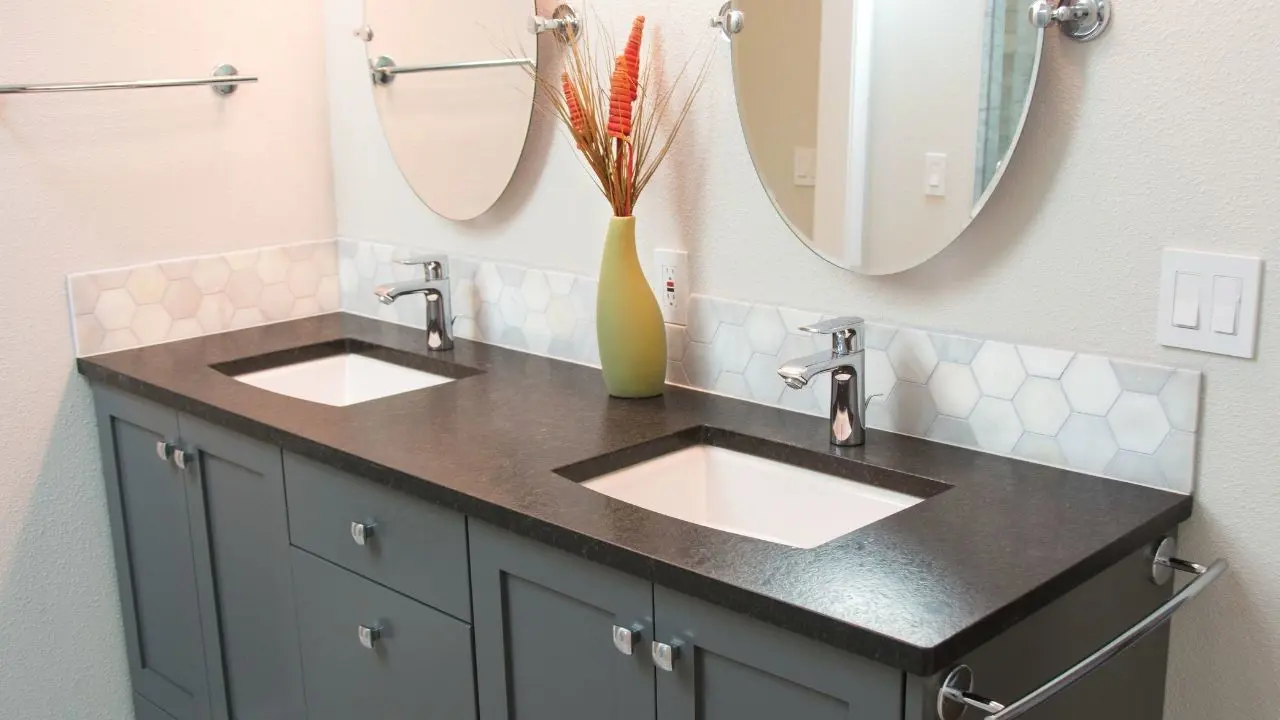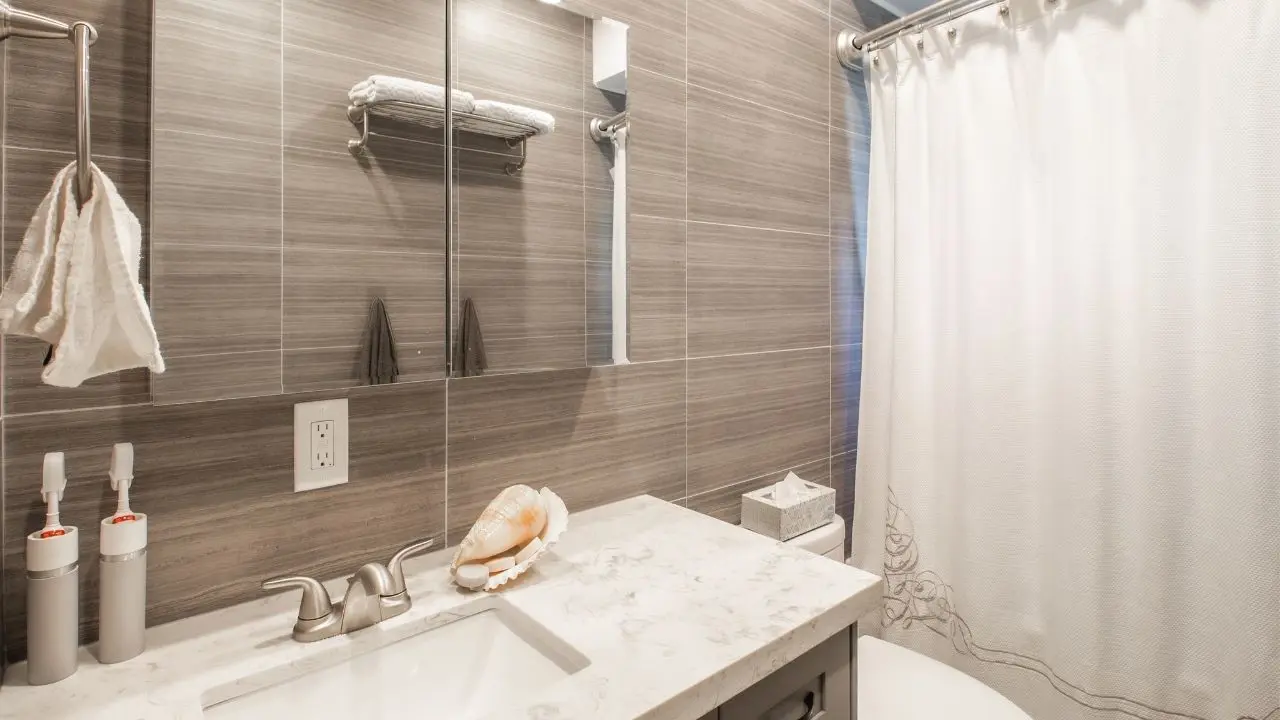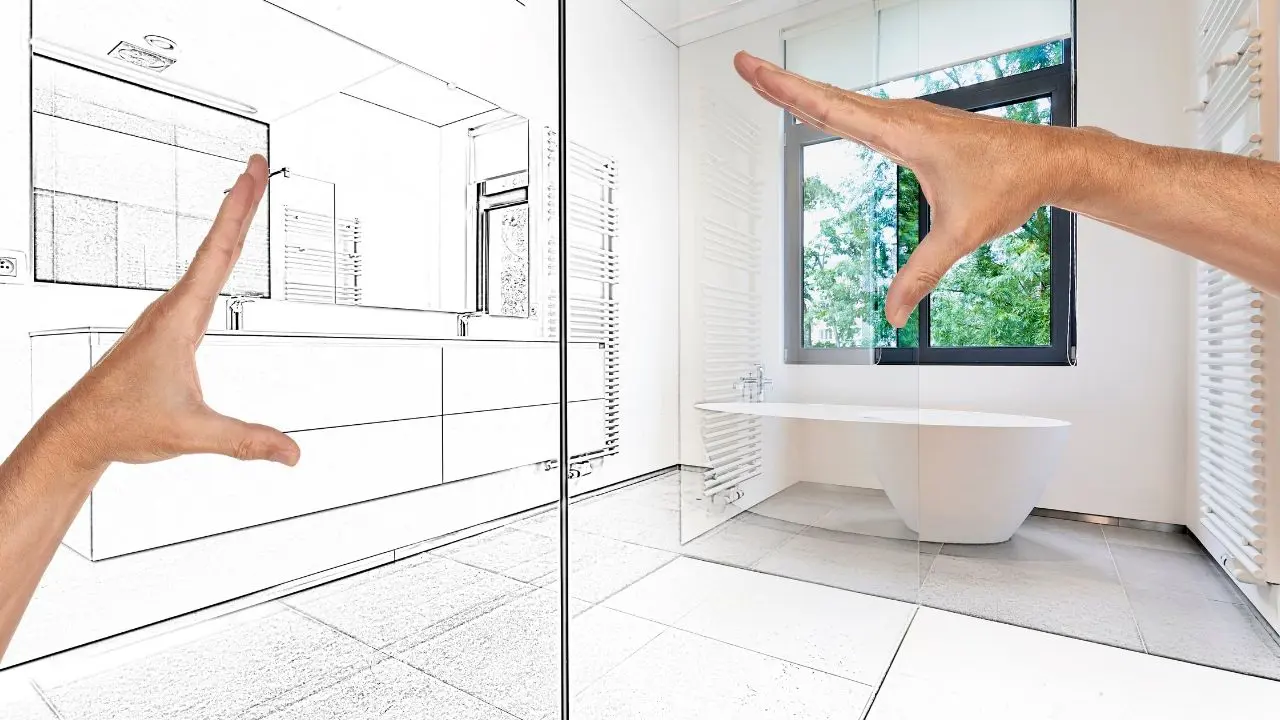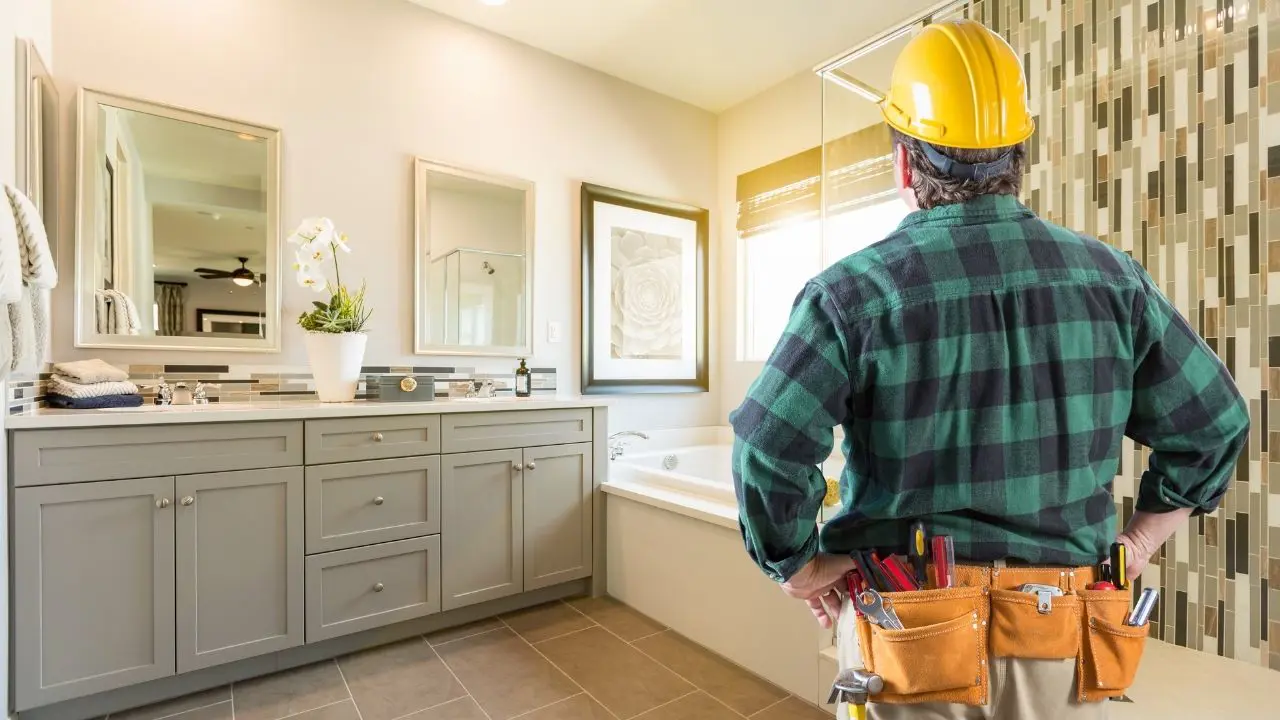A complete bathroom renovation can breathe new life into your home, enhancing both its functionality and aesthetic appeal. Whether you're looking to modernize a dated space or create a spa-like retreat, a bathroom remodel offers numerous benefits. First and foremost, renovating your bathroom and kitchen allows you to tailor the space to better suit your needs and preferences. This includes upgrading fixtures, such as sinks, toilets, and showers, to more efficient and stylish options. Additionally, you can reconfigure the layout to optimize space and improve flow, creating a more functional and enjoyable environment.

Beyond functionality, a bathroom renovation presents an opportunity to enhance the overall design of your home. You can choose materials, colors, and finishes that complement your personal style and seamlessly integrate with the rest of your decor. From sleek and modern to cozy and rustic, the possibilities are endless when it comes to transforming your bathroom into a space that reflects your taste and personality. In addition to aesthetic and functional improvements, a bathroom renovation can also increase the value of your home. Updated bathrooms are a major selling point for potential buyers and can significantly boost the resale value of your property. By investing in high-quality materials and professional craftsmanship, you can ensure that your renovated complete home renovation not only looks great but also stands the test of time.

When planning a complete bathroom renovation, it's important to consider both the practical and logistical aspects of the project. This includes setting a realistic budget, determining a timeline for completion, and hiring experienced professionals to handle the work. From plumbers and electricians to carpenters and tile setters, a successful renovation requires a skilled team of experts who can bring your vision to life. One of the key decisions you'll need to make during the renovation process is selecting the right materials and fixtures for your new bathroom. This includes choosing durable and water-resistant flooring, such as tile or vinyl, as well as selecting countertops and cabinetry that can withstand the moisture and humidity typically found in bathrooms. You'll also need to consider lighting, ventilation, and storage options to ensure that your renovated bathroom is both comfortable and functional.

In addition to updating the major components of your bathroom, such as the bathtub, shower, and toilet, you may also want to incorporate special features to enhance the overall experience. This could include installing a luxurious soaking tub, a spacious walk-in shower with multiple showerheads, or even a state-of-the-art sound system for ultimate relaxation. Throughout the renovation process, communication is key to ensuring that your vision for your new bathroom is realized. Be sure to work closely with your contractor and design team to convey your ideas and preferences, and don't hesitate to ask questions or raise any concerns that arise along the way. A complete bathroom renovation offers numerous benefits, from improving functionality and aesthetics to increasing the value of your home. By carefully planning and executing your renovation project, you can create a beautiful and functional bathroom that enhances your daily life and adds value to your property.
In what order should you renovate a bathroom?
- Planning and Design: Start by planning the layout and design of your new bathroom. Consider factors such as the placement of fixtures, storage options, and overall aesthetic.
- Demolition: Remove any existing fixtures, tiles, flooring, and other materials that are being replaced. This typically includes removing old sinks, toilets, bathtubs or showers, and tearing out old tile or flooring.
- Plumbing and Electrical Work: If you are relocating or installing new plumbing fixtures, such as sinks, toilets, or showers, or if you are updating electrical components, such as lighting or outlets, this work should be done next. It's essential to ensure that all plumbing and electrical work is up to code.
- Wall and Floor Preparation: Once the plumbing and electrical work is complete, prepare the walls and floors for new finishes. This may involve repairing drywall, patching holes, and smoothing surfaces in preparation for tiling or painting.
- Installation of Fixtures: Install new fixtures, including sinks, toilets, bathtubs or showers, and any additional features such as towel bars or shelves.
- Tiling: If you are installing tile, start by tiling the walls first, followed by the floors. Allow the adhesive to dry completely before grouting the tiles.
- Flooring: If you are not tiling the floors, install the flooring next. This may include options such as vinyl, laminate, hardwood, or other materials.
- Painting: Once the tile and flooring are installed, paint the walls and ceiling. Be sure to use moisture-resistant paint in bathrooms to prevent mold and mildew growth.
- Finishing Touches: Install any remaining accessories, such as mirrors, lighting fixtures, cabinet hardware, and shower curtains or doors.
- Final Inspections: Before completing the renovation, conduct a thorough inspection to ensure that all work has been completed to satisfaction and meets building codes and regulations.
Following these steps can help ensure a smooth and successful construction renovations bathroom renovation project. However, it's essential to adapt the order to fit the specific needs and requirements of your renovation. Additionally, hiring professionals for certain tasks, such as plumbing or electrical work, can help ensure quality and safety throughout the process.

What is the most expensive part of a bathroom remodel?
- Fixtures: Fixtures such as sinks, toilets, bathtubs, and showers can be significant expenses, especially if you choose high-end or custom options. Features like whirlpool tubs, multi-head showers, or designer sinks can significantly increase costs.
- Tile and Flooring: Tile and flooring materials can also contribute significantly to the overall cost of a bathroom remodel, especially if you opt for premium or natural stone tiles. Additionally, labor costs for installing tile can be higher due to the precision and expertise required.
- Plumbing and Electrical Work: If your remodel involves relocating plumbing or electrical fixtures or updating the plumbing and electrical systems, these can be significant expenses. Hiring licensed professionals for these tasks is essential for safety and compliance with building codes, which can also increase costs.
- Custom Cabinetry and Countertops: Custom cabinetry and countertops, especially those made from high-quality materials like hardwood or stone, can add to the overall cost of a bathroom remodel. Additionally, features like built-in storage solutions or integrated lighting can increase expenses further.
- Labor Costs: Labor costs, including demolition, construction, installation, and finishing work, can be a significant portion of the overall cost of a bathroom remodel. Skilled tradespeople, such as plumbers, electricians, carpenters, and tile installers, may charge higher rates for their expertise and experience.
Overall, the most expensive part of a bathroom remodel is often determined by the homeowner's priorities, preferences, and the specific features and materials chosen for the project. It's essential to carefully plan and budget for each aspect of the remodel to ensure that expenses are managed effectively and that the final result meets your expectations within your budget constraints.
How do I redo my whole bathroom?
Assessment and Planning:
- Evaluate your current bathroom and identify what you want to change or update.
- Determine your budget for the remodel and prioritize your needs and wants.
- Create a design plan that includes layout changes, fixture upgrades, material choices, and aesthetic preferences.
Gather Inspiration:
- Look for inspiration online, in magazines, and through home improvement shows to gather ideas for your new bathroom design.
- Consider factors such as color schemes, tile patterns, fixture styles, and overall ambiance to help guide your decisions.
Set a Timeline:
- Determine a timeline for your bathroom remodel, taking into account factors such as availability of materials, contractor schedules, and your own availability for project management.
Hire Professionals:
- Depending on the scope of your remodel, you may need to hire professionals such as plumbers, electricians, carpenters, and tile installers.
- Research and gather quotes from multiple contractors to find the right team for your project.
Demolition:
- Begin by removing existing fixtures, tiles, flooring, and any other elements you plan to replace.
- Take care to protect surrounding areas from dust and debris during demolition.
Plumbing and Electrical Work:
- If you're making changes to plumbing or electrical systems, have these updates completed by licensed professionals before proceeding with the rest of the remodel.
Install New Fixtures:
- Install new fixtures such as sinks, toilets, bathtubs, showers, and faucets according to your design plan.
- Ensure proper measurements and placement to avoid issues later on.
Tile and Flooring Installation:
- Lay out and install new tiles for walls and floors, taking care to use appropriate adhesives and grouting techniques.
- If you're installing new flooring, follow manufacturer guidelines for proper installation.
Painting and Finishing Touches:
- Paint walls and ceilings with moisture-resistant paint in the color of your choice.
- Install trim, baseboards, and other finishing touches to complete the look of your new bathroom.
Final Inspections and Clean-Up:
- Conduct a final inspection to ensure that all work has been completed to satisfaction and meets building codes.
- Clean and tidy up the space, removing any debris and preparing your new bathroom for use.
By following these steps and staying organized throughout the process, you can successfully redo your entire bathroom and create a beautiful and functional space that meets your needs and reflects your personal style.
Are bathroom remodels worth it?
Improved Functionality: A bathroom remodel can update outdated fixtures and improve the functionality of the space. Upgrading to energy-efficient appliances, installing a larger shower or bathtub, or adding storage solutions can enhance usability and convenience.
Increased Home Value: A well-executed bathroom remodel can increase the value of your home. Modern, updated bathrooms are attractive selling points for potential buyers and can lead to a higher resale value when it comes time to sell your home.
Enhanced Comfort and Enjoyment: Investing in a bathroom remodel can improve your comfort and enjoyment of your home. A renovated bathroom can provide a spa-like retreat where you can relax and unwind after a long day, enhancing your overall quality of life.
Energy Efficiency: Upgrading to energy-efficient fixtures and appliances during a bathroom remodel can help you save money on utility bills in the long run. Low-flow toilets, water-saving faucets, and LED lighting can reduce water and energy consumption, leading to lower operating costs.
Addressing Maintenance Issues: Remodeling your bathroom allows you to address any underlying maintenance issues, such as water leaks, mold growth, or plumbing problems. Fixing these issues during the remodel can prevent more significant problems down the line and save you money on repairs in the future.
Personalization and Style: A bathroom remodel gives you the opportunity to personalize the space and reflect your personal style. Whether you prefer a modern, minimalist design or a more traditional aesthetic, you can customize the look and feel of your bathroom to suit your tastes.
Ultimately, whether a bathroom remodel is worth it depends on your individual circumstances and priorities. If you plan to stay in your home for the long term and you have the budget to invest in upgrades that will enhance your comfort and enjoyment, then a bathroom remodel can be a worthwhile investment. However, if you're on a tight budget or you're planning to sell your home soon, you may want to focus on more cost-effective updates that will provide a good return on investment.


